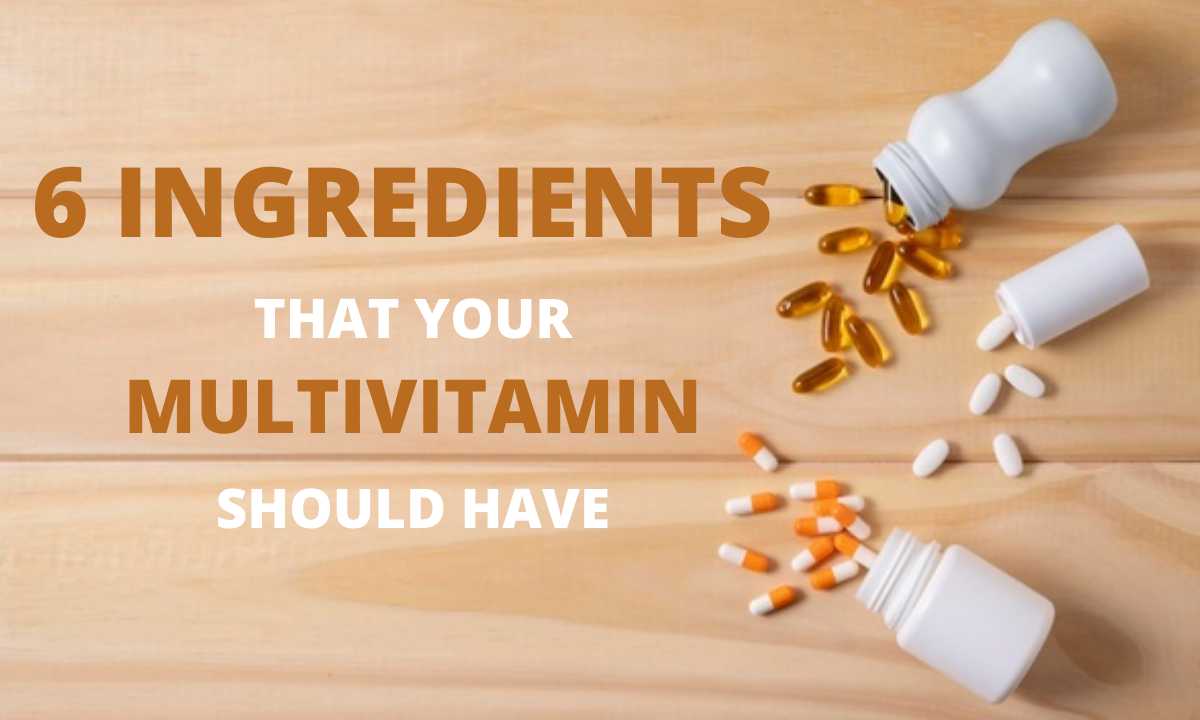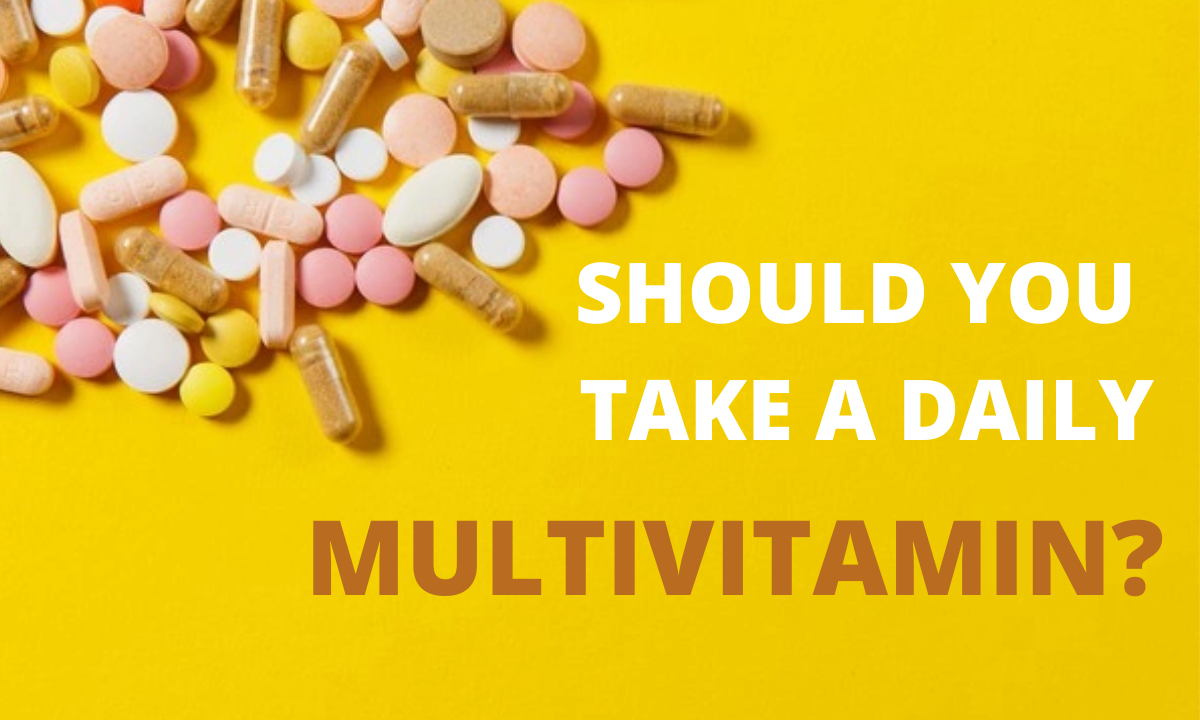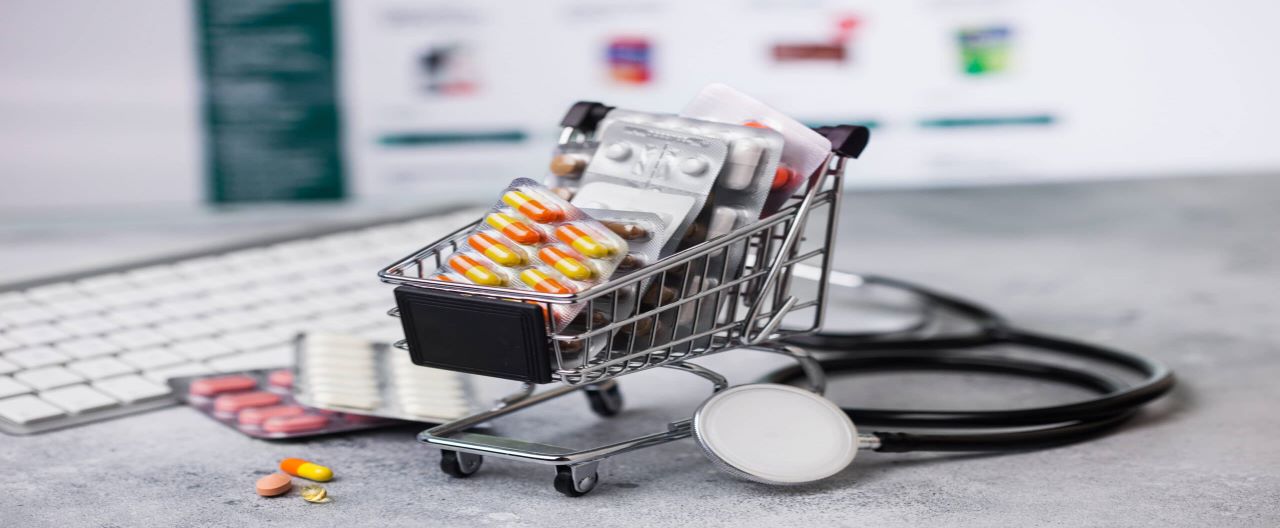A Definitive Guide to Supplements 2021
General Health | August 18th | By J.S.Chang, RD
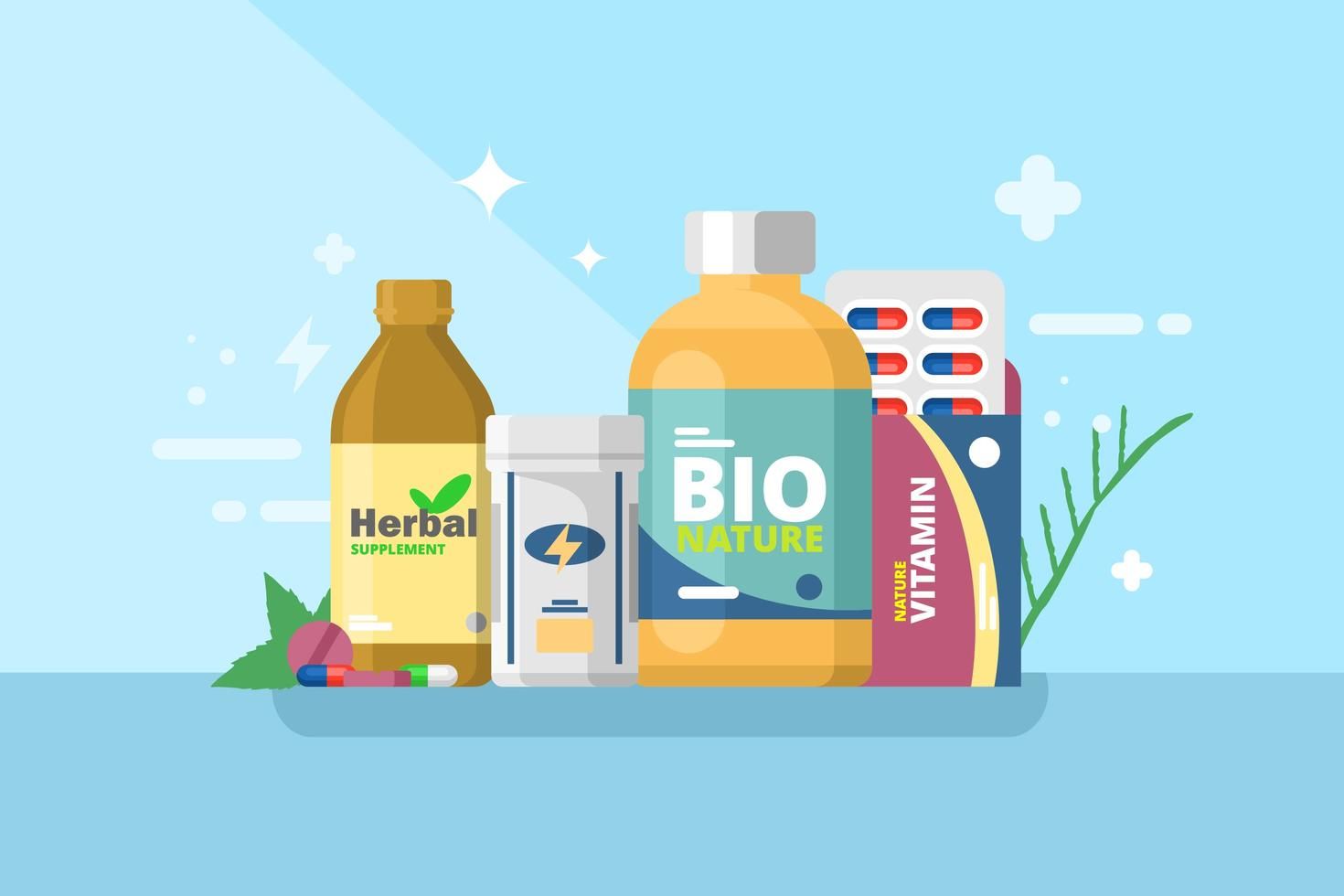
Introduction
According to a study done by the Malaysian Adults Nutrition Survey (MANS)[1] in 2014, 1 in 3 adults ranging from 18-59 years old was found to be taking dietary supplements or vitamins at some point. Hence, it is not difficult to see that health supplements play a significant role in our daily lives, and we are more health conscious than ever before.
We are constantly bombarded with all the information available to us online, but it is up to us to determine which is real or which is fake. As a dietitian myself, I am constantly in question about the types of supplements people take just because they heard or read somewhere that it is helpful and has a ton of benefits which sometimes can be an overclaim. I am concerned that while most of the time it does not present any significant risks, imbalances of vitamins inside the body do occur. And so, it begs the question, How do you pick the right vitamins?
In these few chapters, I hope it will bring you more clarity on this subject by analysing this topic from the view of a registered dietitian.
2. Understand Your Needs
Do you really need vitamins?
For the average person, it is easier said than done. If you are not from a health or science background, how do you judge whether you need it or not? It’s safe to say that most healthy people actually do not need one, but there are still a lot of factors that go into determining whether you need it or not, including your age, gender and even diet, which you can find out more below.
2.1 Age

Without a doubt, age plays a particular important role here. Someone who is younger usually does not need that much of a supplementation when compared to an elder. Getting older means that the ability for the body to absorb or keep certain vitamins and minerals becomes weaker, and it happens to the best of us.
For example, Ubiquinol can be one of the supplements an elderly needs. Ubiquinol is needed by the body to maintain a good energy level as they are involved in the body’s energy production. It also helps in maintaining a healthy heart[2]. As we age, the body’s ability to produce Ubiquinol weakens and some may feel a decrease in their daily energy levels.
Vitamin D, known also as the sunshine vitamin, can also be one of the vitamins that an elderly person needs. There are 2 possible reasons[3] why the elderly are more prone to vitamin D deficiency:
1) The body’s ability to synthesize vitamin D via outer skin decreases
2) They spend less time outdoors. A lack of vitamin D might cause you to feel depressed and tired all the time.
Besides, vitamin D is also important in regulating calcium and potassium levels in the body, which are the major components of the bone.
2.2 Gender
![]()
A man’s nutrition needs could be different to a woman’s. Some supplements are considered “exclusive” to one gender as it provides a certain benefit to them. And lots of the recommended daily allowance of vitamins varies as well, usually with the men taking slightly more than the women.
For example, traditional herbs such as Tongkat Ali, are usually known to boost male libido and men's health. While it is true that it benefits both men and women, the benefits it brings to men is more than women and therefore you might take that into consideration when choosing your supplements.
Vice versa, cranberry extract is considered a strong antioxidant and is famously known to help in women’s health, especially during urinary tract infections[4] (UTI), mostly due to its ability to prevent the adherence of bacteria to the urethra and bladder walls. Although UTI is quite common in women, as much as 60% [5] have it at some point in their lives, but it does occur in men as well. Therefore, I have to stress the importance of taking the right vitamins based on your current condition.
2.3 Diet

If we are talking about nutrients or supplements, yes, I agree the best way for us to get what we need is through whole foods in our daily diet. But the sad truth is that most of us probably don’t get the required amount of nutrients from diet alone. There are a few possible reasons we don’t achieve that:
· Lack of diversity in food selection
· Personal choice to exclude certain type of foods, i.e. vegetarians
· The nutrients contained inside the raw ingredients isn’t what it used to be decades ago
So, it is apparent to us that for this group of people, getting vitamins in the form of supplementation is the way to go. I will give a more obvious example, as stated earlier, vegetarians are at a higher risk of being deficient in certain vitamins, such as iron and vitamin B12. Vitamin B12 in particular, is found only in animal sources, and that is why compared to other vitamins, this is the one that poses the highest risk of them all.
2.4 Medical Conditions
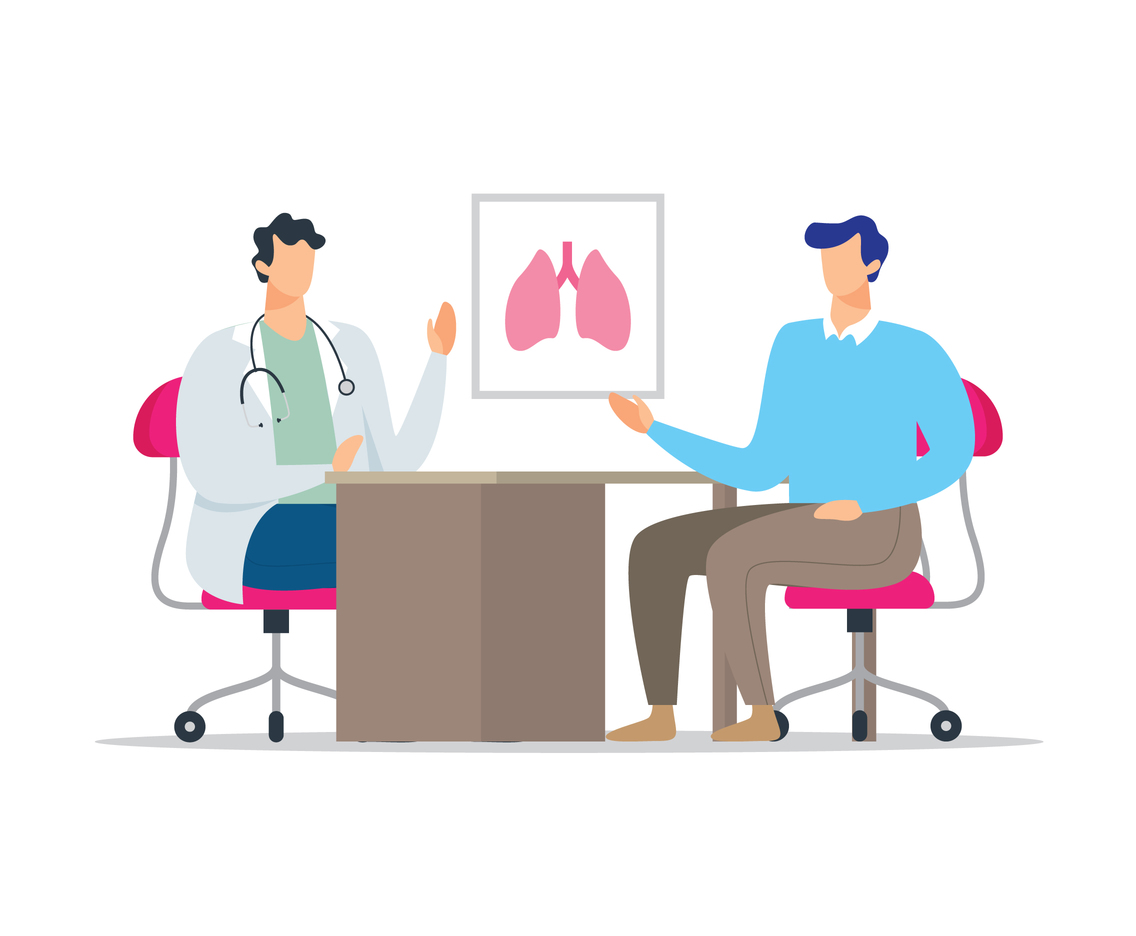
There are lots of medical conditions that have certain exclusions from the diet or something people are allergic to, but I will be covering some that are more commonly seen or where most people encounter.
i. Lactose Intolerance
If you have never heard of this term, it’s basically you being allergic to the sugar “lactose” found inside the milk or other dairy products. It is most prevalent in people of East Asian descent, as much as 70% is affected in this community[6]. It is a type of genetic mutation where the body lacks the enzyme lactase to break down lactose, causing symptoms such as bloating, flatulence, nausea or abdominal pain. Now, this group of people have to be extra careful in their calcium intake as they can easily be deficient in it since the major source of calcium comes from dairy sources.
ii. Celiac Disease
Also known as gluten intolerance, this is a more uncommon allergic reaction where it results in an immune reaction when the affected individual consumes gluten, a protein commonly found in wheat, barley and rye. It causes an abnormal immune reaction where your immune system attacks your own gut tissue, causing you to have a lower ability to take in nutrients. It may cause some undesirable symptoms such as bloating, indigestion, flatulence and others. Micronutrient deficiencies[7] in such patients are not uncommon, and they may be lacking in iron, folic acid, vitamin B6, B12, copper and zinc.
iii. Allergies
There are many kinds of allergies, but among the most common ones will be eggs, seafoods and nuts. When ingested, they may cause allergic reactions of different severity, depending on the person. Mild symptoms are itchiness, redness, swelling; while severe symptoms may include breathing difficulties, chest tightness and eventually shock. Therefore, it is important to choose vitamins or supplements which do not contain such allergens, and you can look at the product’s nutritional facts to know this, which will be displayed on the product packaging.
2.5 Occupation
Your everyday job takes up almost one third of your day, and it is not uncommon to hear of occupational hazards as long hours of doing the same thing can cause certain health issues. For example, office workers often have a similar problem which is eye soreness/dryness due to long exposure of computers and electronic devices. Eye dryness is just one of the symptoms, but there are health risks that are invisible to us, i.e., the blue light from computers that could harm our retina layer which is the main cause for age-related macular degeneration (AMD). Supplements such as astaxanthin, lutein, antioxidants and fish oil could potentially help with the symptoms as well as protecting the eye.
Stress is a common theme especially in work, and stress itself is a root cause of many degenerative diseases through the production of certain pro-inflammatory cytokines and free radicals. Of course, it is important that we manage our work life and try to strike a balance between, but we can also take certain supplements containing adaptogens[8] which can increase our resistance to stress and reduce its damage to our body. Some well-known adaptogens are Rhodiola rosea, Ashwagandha and Astragalus. They function by increasing your body’s ability and duration to maintain in stressful conditions, hence you will feel less tired during stress.
2.6 Pregnancy

When it comes to pregnant women, there are a few things to take note of. Carrying another life inside you is no easy feat. And because of that, they too have to take extra steps to make sure all is well for both the mother and the baby’s health. Vitamins such as folic acid and iron can be particularly important for them.
Folic acid, one of the vitamins B, is needed to prevent a condition called neural tube defect (NTD) in foetus. Neural tube defects are birth defects of the brain or spinal cord which usually happens in the first trimester of pregnancy. It causes nerve damage that results in some damage like paralysis to the legs, or brain and skull not developing normally. It is usually taken 1 month before conception and then continued in the first trimester.
Iron is another example. When iron is low in your blood, it may cause anemia because it is one of the main components in red blood cells. As such, it is particularly important for women who lost their body iron store from periods to take in enough iron or iron-rich foods to replenish their stores.
It is recommended for pregnant women to start supplementing iron during the second and third trimester to prepare them for the blood loss during laboring. WHO[9] had recommended that pregnant women take 30 to 60 mg of elemental iron to prevent conditions such as anemia, low birth weight or preterm birth.
DHA is another supplement that is important during pregnancy. Docosahexaenoic acid, or DHA, is an essential fatty acid that is important for a healthy nervous system, eye and brain development of the foetus. At least 200 mg of DHA[10] daily is usually recommended for pregnant women, and you may find that most prenatal supplements do actually contain 200 mg of DHA as well.
3. Check The Details (Label)
One of the things that most people missed out is reading the label behind the supplement carefully. These labels contain a lot of information, so which should you look out for? I have listed out a few points that you might need to take note of.
3.1 Product Registration Number
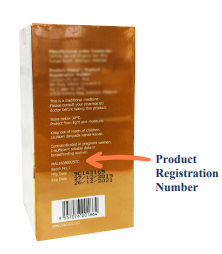
Perhaps the easiest way of determining the genuineness of a product is by looking for the product registration number, or in this case, the MAL number. MAL number[11] is a registration number given to items such as medicines, supplements or cosmetic products by the National Pharmaceutical Regulatory Agency of Malaysia (NPRA). A search in its website portal will reveal the product’s information such as the product holder, manufacturer and active ingredients. Head over here to find out whether your vitamins are a registered product or not.
3.2 Active Ingredients
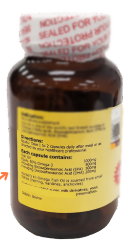
As a consumer, it is always a good practice to look at the active ingredients or the major ingredient of the product. You can easily identify the ingredient which contributes the most by looking at the first ingredient as it is required by law to display the ingredients in the total amount by order.
3.3 Dosage
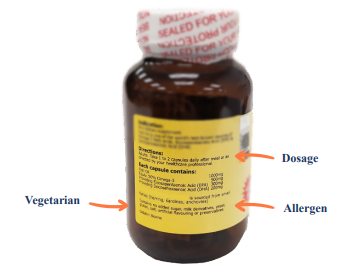
After knowing what the product is made of, the next step will be looking at the dosage stated beside the ingredient name. Usually, the dosage is just one single line and it is easier to identify, but occasionally, supplements like fish oil actually have 2 components which make up omega-3, namely EPA and DHA. For example, the capsule may contain 1000mg in total, but in truth the EPA and DHA only constitutes 180 mg and 120mg respectively, the rest is actually other parts of the oil. So in truth, the ones you should be looking for are EPA and DHA, because for the same amount of oil in a capsule, there may be different amounts of EPA and DHA.
3.4 Allergens
As stated earlier, some products may or may not contain allergens, and the product holder will have a disclaimer stating that said product might contain allergen such as dairy sources or nuts. It is certainly helpful if you happen to have any allergy of that sort.
3.5 Vegetarian/Non-vegetarian source(s)
Depending on the supplement, some may contain bovine sources or seafood (in the case of glucosamine and chondroitin). So when you are picking out your vitamins, and you are a vegan, be sure to look out for sources stating whether it is suitable for you or not.
4. Various Forms of Vitamins
Vitamins come in all shapes and sizes. So are any of them superior over the other? Why are there so many different forms to choose from? Each has its pros and cons, and here is what you need to know.
4.1 Capsules
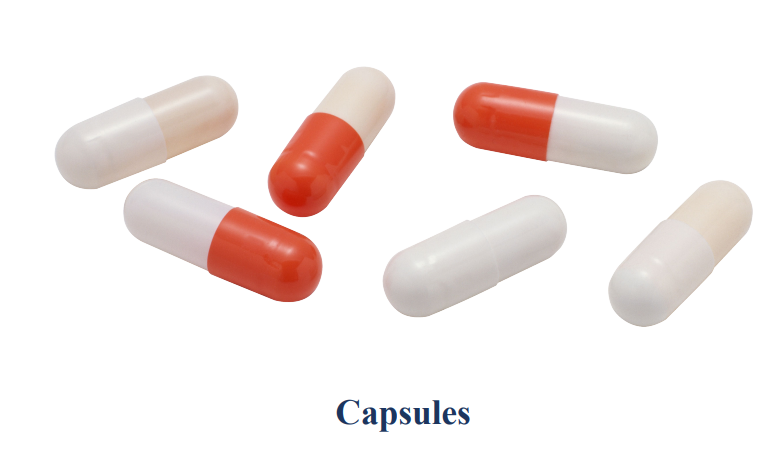
Capsules are a cylindrical outer shell made out of dissolvable gelatin (animal source), but there are some which are made using vegetarian sources. The capsules are tasteless and odourless, and depending on the size, most of them are easy to swallow.
These capsules when ingested can break down faster in the body and the contents can then be absorbed by the body. Most of the capsules you see will contain some form of powder, and if the capsule edges are not sealed, you can even open up the capsule and empty its contents into a more suitable medium to consume.
One of the biggest flaws of these capsules is that they are more susceptible to tampering, and in some cases, the contents can be affected after some time. They are more expensive to manufacture and produce compared to a conventional tablet.
4.2 Tablets
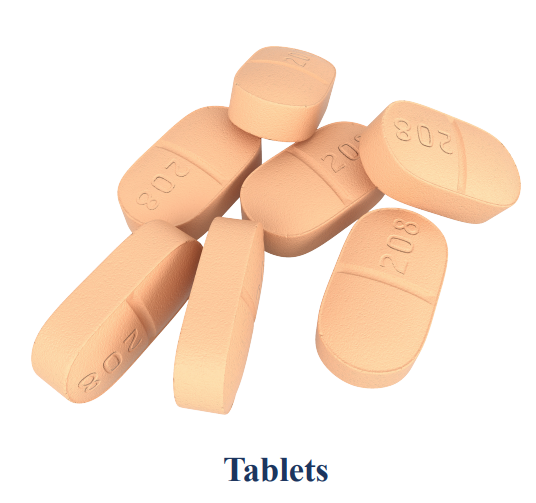
Tablets are commonly seen in the supplement market as a form of storage and it comes in various shapes and sizes to suit consumer’s needs. They can be circular, oval, flat, and some may coat it with ingredients to either protect the tablet or as a method to slowly release its contents into the body.
One of its many benefits is that it is more shelf-stable than the other forms and can retain its potency for a longer period of time. It is also less expensive and costly to produce them than capsules. But tablets can be difficult to swallow for some due to its rougher surface.
4.3 Soft Gels

These are similar to capsules, but the caging is usually made out of a combination of glycerin and sorbitol. They are mostly used in liquid or oil-based supplements, such as fish oil or flaxseed oil. The outer surface tends to be smoother than capsules, and easier to swallow too.
When compared to ordinary capsules, they have a longer shelf-life as they are completely sealed off and air-tight. In terms of costing, it is also more expensive to produce, maybe even more than that of capsules.
4.4 Chewable
Some people have difficulty swallowing pills like capsules and tablets, so chewable can be a good alternative for them. They tend to be sweeter to make them more palatable for consumers, and children are a big fan of them. One of the downsides though, is that the potency is usually not that high, and sometimes they can clump together after storing for some time due to a lack of a proper coating.
4.5 Effervescent Tablets
Similar to tablets, just soluble in water. It is usually made for those supplements that might cause some disruption to the stomach, such as vitamin C effervescent tablets, which are commonly seen in the market. It can also be a good alternative to those unable to swallow hard pills. An important thing though, patients with hypertensive or high blood pressure history might not be suitable to take effervescent tablets due to the higher amount of sodium inside each tablet, which in turn have a higher chance to increase their blood pressure.
5. Storage
Where you store them can be important as well. It is recommended that you store them in a cool dry place to avoid any unwanted spoilage. In many cases the supplements go bad because of exposure to heat, or abnormal levels of humidity. And that brings us to another question: Why is it that most local supplements do not contain too many pills in a single bottle?
Considering Malaysia’s relative humidity is around 60-80%, whereas if you compare to that of Australia which is around 30%, means that the environment in Malaysia is much more humid than in Australia, and that causes a lot of things such as supplement pills to easily dampen and affect its potency. Hence, it is uncommon to see a large quantity of pills inside a single bottle in Malaysia; unlike those in drier countries, they can afford to store a large amount of pills inside the bottle!
6. Possible Deficiencies
Perhaps among the most prevalent micronutrient deficiencies in Malaysia are iron, iodine, vitamin A, vitamin B12, folic acid and vitamin D. If you think that you show symptoms or might be deficient in certain vitamins or minerals, please go to your primary healthcare provider for a blood test to confirm. I have summarized them into a table below.
|
|
|
|
|
|
|
|
|
|
|
|
|
|
|
|
|
|
|
|
|
|
|
|
|
|
|
|
|
|
|
|
Table 1: Data compiled from National Research Priorities in Malaysia for 12th Malaysia Plan (2021-2025). [12]
7. Safety and Overdosing
Unlike drugs and medicines, there is no harm in taking supplements everyday as they do not usually cause life-threatening implications when overdosed. But most vitamins do have a tolerable upper intake level (UL) where taking amounts beyond this limit might dramatically increase your chances of having serious side effects.
When it is certainly not as potent as drugs, overdosing can be a real issue if you are not careful enough. I will give a few examples on the side effects from taking too much of a certain nutrient.
|
|
|
|
|
|
|
|
|
|
|
|
|
|
|
|
|
|
|
|
|
|
|
|
|
|
|
|
Table 2: Data from RNI Malaysia 2017 Edition. [13]
8. Health Goals
Having health goals are also part of the process when you are choosing the right vitamin for you. As in other aspects of your life, it is important for you to set a goal for yourself in terms of what you want to achieve in your health. These are things you have slightly more control of.
For example, you realized that you tend to get sick easily, frequently catching common colds or having a few coughs here and there. So, you have decided that you want to change that, starting by strengthening your immune system.
Another example would be you worked out a lot, and you feel that your muscles seem to not recover as quickly as they should, or the period of resting in between workouts is not ideal for you, therefore you might consider taking supplements to help with that.
9. When to Take Vitamins
Here, I will be discussing the “when” in a bigger and smaller sense. The bigger sense being, when should you start taking vitamins in your daily life? Well, the answer depends on you. No one knows your body better than yourself. If you feel like your body condition is not what you expect it to be, or deteriorating at a significant rate, then you might want to consider taking dietary supplements with the advice of healthcare professionals.
Now, in the smaller sense would be once you are taking them, when should you take them during the day, or night? It can be both before and after meals, but it really depends on the type of vitamin you are taking.
For example, water-soluble vitamins such as vitamin C, B complex can be taken on an empty stomach, 30 minutes before meal, or 2 hours after meal. The reason being the vitamins won’t get “stuck” in meals trying to be absorbed, and without a meal getting in the way the body can absorb it better. But, for some people who have a weaker stomach will want to consider taking vitamin C with meals or after meals, since vitamin C is acidic in nature and might cause upset in some people’s stomach.
Fat-soluble vitamins such as vitamin D, vitamin A however, might be best taken after meals to increase the absorption. When your body is digesting a meal, especially oily ones, it will further aid in the absorption of such vitamins.
Special mentions such as iron, is better to be taken on an empty stomach, so as to not interfere with its absorption. A big “no-no” will be taking it together with calcium supplements as it will affect their absorption significantly. To aid in the absorption with iron, taking it together with fruit juices that contain vitamin C will help as well.
Some supplements will be better if they are taken at night. One such supplement will be liver detoxing supplements such as milk thistle or Antrodia. It has no problem being taken in the day, just that your body’s liver detoxing starts at 11pm during bedtime and having a supplement before that might further help in your liver’s detoxification.
So it’s up to you to find the right timing that is the most beneficial to you!
10. Vitamins vs Natural Food
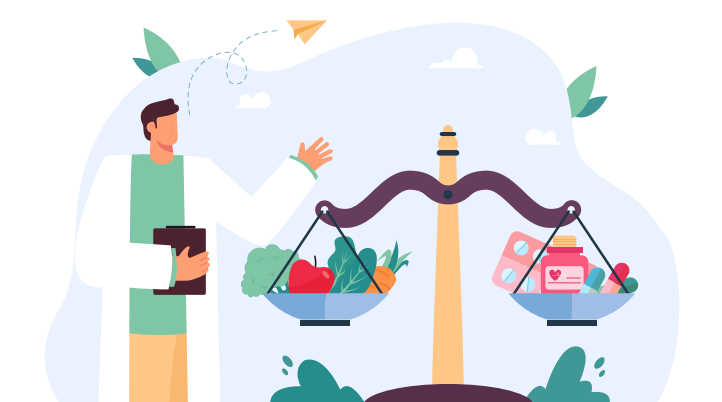
While experts agree that consuming natural foods is certainly far more preferable than taking individual vitamins or supplements, there are a few reasons that you might have to take into consideration.
Firstly, natural foods or whole foods contain a lot more nutrients compared to just one type of supplement, and the benefit in taking natural foods is that you might get the synergistic effect between the nutrients instead of one. Where it might be true, but over the decades we have seen a decline or loss of nutrients in the very soil that planted them, and with that the plants themselves are not the same as they were a few decades before. To put simply, the same species and the same weight of apple does not contain as many nutrients as they did. This in turn might further contribute to a lesser amount of a nutrient being taken daily, which brings me to my second point.
Let’s be honest here. With the enormous amount of choices we have for our daily meals, fast foods, takeaways, most of us simply do not take the sufficient amount of nutrition needed as recommended. It might not be a matter of choice, but a result of environment and other factors also contribute to one not having the recommended daily intake, and eventually it becomes a deficiency. So as you see, taking vitamins or supplements is not a bad thing per se, but it is subject to your daily needs and requirements.
11. Possible Interactions
As with anything, safety always comes first. Even the vitamins you take might have interactions with other substances and may cause undesirable side effects for you. I will list out some examples of such interactions.
i. Vitamin K and Warfarin
When you are on blood-thinning medications such as Warfarin, it is important to let your healthcare provider know, as vitamin K could reduce the effectiveness of the drug.
ii. Caffeine and Vitamin D, Calcium or Iron
Caffeine interferes with the absorption of quite a few of them, so it is always best to avoid caffeine when taking such supplements or at least an hour after taking them.
iii. Calcium and antibiotics
If you happen to take antibiotics of the Tetracycline family such as Doxycycline, you should take extra care when taking calcium supplements as calcium will interact with the drug, making your body unable to effectively absorb the drug.
12. Conclusion
“To me, the future is personalization” - Marissa Mayer
Picking the right vitamins is important because everyone and their condition is different. As stated in the earlier chapters, there are a lot of factors that go into choosing the right vitamins for yourself. There is a saying “One man's meat is another man's poison”, and in this context it means that vitamins that suit the other person don't necessarily suit you. It can be a waste of resources or even poses a risk to you if you are not careful enough. It largely depends on your needs that are based on your lifestyle and goals.
There’s not really a “One-size-fits-all” vitamin out there. Marissa Mayer, the former CEO of Yahoo!, once said “To me, the future is personalization”. And I couldn’t agree more. Personalization is indeed the new trend, especially in this era where there is an abundance of resources, it will be wise for us to filter out those unnecessary to us so that we can maximize our benefits. So, take your vitamins healthily and wisely!
13. Disclaimer
Vitamins and supplements are not intended to treat or cure any disease. You should always seek the advice of a healthcare professional before starting a new regime. If for any reason, you should wonder whether you are lacking certain nutrients or vitamins, it’s best to visit your primary healthcare provider to have a detailed blood test and check it out.
14. References
1. AM;, L. P. H. L. (2008). Supplemental ubiquinol in patients with advanced congestive heart failure. BioFactors (Oxford, England).
2. Assakina, P. B. L. (2021, July 23). FAQ : Product registration. National Pharmaceutical Regulatory Agency (NPRA).
3. Dietary supplementation advice for celiac patients. Celiac Disease Foundation. (2020, March 25).
4. Hisano, M., Bruschini, H., Nicodemo, A. C., & Srougi, M. (2012). Cranberries and lower urinary tract infection prevention. Clinics (Sao Paulo, Brazil).
5. Hisano, M., Bruschini, H., Nicodemo, A. C., & Srougi, M. (2012). Cranberries and lower urinary tract infection prevention. Clinics (Sao Paulo, Brazil).
6. Meehan, M., & Penckofer, S. (2014, December). The role of vitamin d in the aging adult. Journal of aging and gerontology.
7. Mohd Zaki, N. A., Zainuddin, A. A., Samad, R., Mohamad Nor, N. S., S, M. A., Ismail, H., Rasidi, M. N; Tee, G. H. (n.d.). Medical journal of Malaysia. Dietary supplement use among adults in Malaysia: finding from Malaysian Adults Nutrition Survey (MANS 2014).
8. Panossian, A., & Wikman, G. (2010, January 19). Effects of ADAPTOGENS on the central nervous system and the molecular mechanisms associated with Their Stress-protective activity. Pharmaceuticals (Basel, Switzerland).
9. U.S. National Library of Medicine. (2020, August 18). Lactose intolerance: MedlinePlus Genetics. MedlinePlus.
10. Von Schacky, C. (2020, March 26). Omega-3 fatty acids in pregnancy-the case for a target omega-3 index. Nutrients.
11. World Health Organization. (2019, February 11). Daily iron supplementation in adult women and adolescent girls. World Health Organization.
13. https://nutrition.moh.gov.my/wp-content/uploads/2017/05/FA-Buku-RNI.pdf
RELATED POSTS
The Best Place To Buy Your Supplements Online, According to a Dietitian
Read Article
-04.webp)


